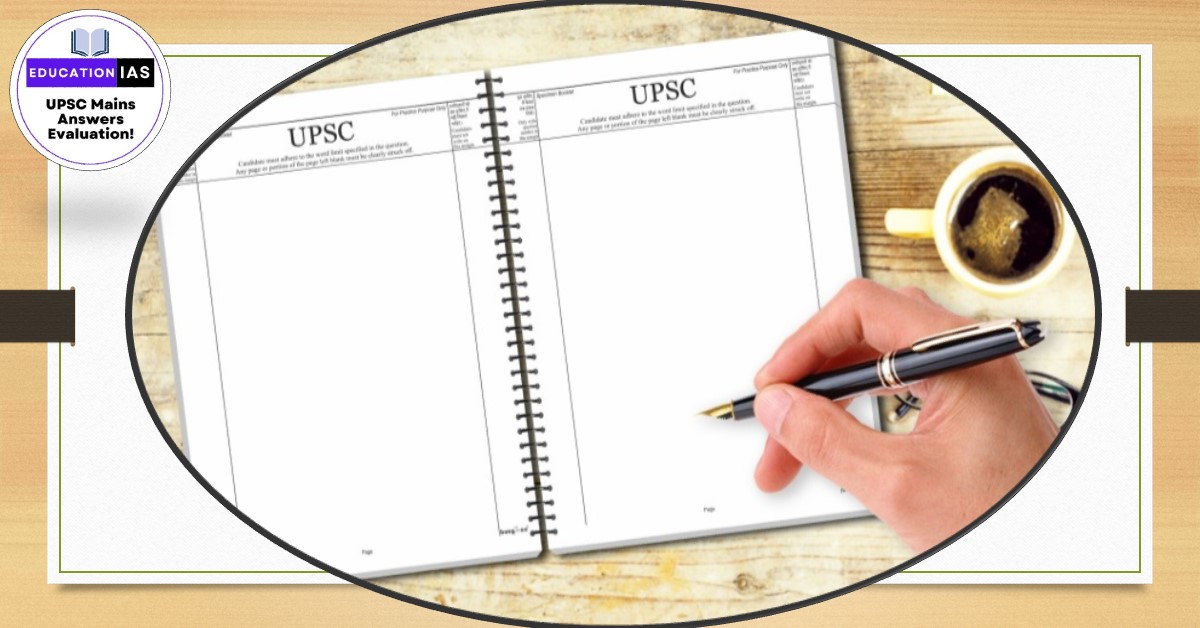Que. How does Indian society maintain continuity in traditional social values? Enumerate the changes taking place in it.
भारतीय समाज पारम्परिक सामाजिक मूल्यों में निरंतरता कैसे बनाए रखता है? इनमें होने वाले परिवर्तनों का विवरण दीजिए।
Structure of the Answer
(i) Introduction: Discuss how Indian society preserves traditional values while also undergoing significant changes due to modernization, globalization, and cultural shifts.
(ii) Main Body: Analyze mechanisms of continuity in traditional values and enumerate the ongoing social changes, using recent examples to illustrate these dynamics.
(iii) Conclusion: Summarize the interplay between tradition and change, emphasizing the need for a balanced approach to preserve cultural heritage while embracing progress.
Introduction
Indian society effectively maintains continuity in its traditional social values through strong familial ties, religious practices, and cultural heritage. However, rapid modernization and globalization are reshaping these values, leading to a complex interplay between continuity and change in contemporary India.
Mechanisms Maintaining Continuity in Traditional Values
(i) Family Structure and Dynamics: The traditional joint family system remains a cornerstone of Indian society, fostering values such as respect for elders, communal living, and mutual support, despite the rise of nuclear families in urban areas.
(ii) Religious Traditions and Practices: Major religions, including Hinduism and Islam, uphold rituals, moral teachings, and festivals that reinforce cultural values, such as devotion, charity, and social responsibility, thereby ensuring the transmission of traditional norms.
(iii) Caste System and Social Hierarchy: Although constitutionally abolished, the caste system persists, especially in rural areas, influencing social interactions, marriage practices, and community structures, which contributes to the continuity of traditional values in these contexts.
(iv) Cultural Celebrations and Heritage: Festivals such as Diwali, Eid, and Pongal celebrate cultural heritage and promote community bonding, highlighting the significance of shared traditions and collective identity in maintaining social values across generations.
(v) Preservation of Traditional Arts and Crafts: The revival and promotion of traditional arts, crafts, and performing arts in various regions, such as Madhubani painting and Kathak dance, help sustain cultural identity and values associated with craftsmanship and artistry.
Social Changes in Indian Society
(i) Influence of Globalization: Globalization has led to exposure to diverse cultures, challenging traditional norms and promoting individualism. This is evident in urban centers, where practices like love marriages and inter-caste relationships are gaining acceptance.
(ii) Urbanization and Nuclear Families: The shift toward nuclear families in urban settings has altered family dynamics, reducing the influence of extended family and leading to more egalitarian values, particularly in gender roles and decision-making.
(iii) Technological Advancements: Social media platforms and digital communication have transformed social interactions, providing spaces for self-expression and advocacy for progressive values, such as gender equality and LGBTQ+ rights, evident in urban youth movements.
(iv) Women’s Empowerment: Increased access to education and job opportunities for women is reshaping societal perceptions, leading to changes in traditional gender roles. Initiatives like “Beti Bachao, Beti Padhao” have encouraged more significant female participation in various sectors.
(v) Changing Attitudes Toward Marriages: The rise in acceptance of inter-caste and inter-religious marriages, as seen in campaigns promoting such unions, signifies a gradual shift away from traditional marriage practices, driven by younger generations advocating for love over caste and religion.
Balancing Continuity with Change
(i) Modernizing Festivals and Traditions: Celebrations are evolving to include environmentally friendly practices, as seen in eco-friendly Ganesh Chaturthi celebrations in cities like Mumbai, blending traditional values with contemporary environmental consciousness.
(ii) Education as a Tool for Change: Educational reforms that emphasize value-based education promote a balance between traditional values and modern skills, fostering critical thinking while ensuring respect for cultural heritage.
(iii) Role of Technology in Cultural Transmission: Digital platforms are being utilized to disseminate traditional knowledge and practices, such as yoga and Ayurveda, ensuring their relevance in contemporary society while retaining cultural significance.
(iv) Revival of Folk Arts and Cultural Heritage: Government initiatives promoting local crafts and folk arts help maintain cultural identity while allowing for innovation and modernization, thus bridging the gap between tradition and contemporary expressions.
(v) Social Movements and Advocacy: Movements advocating for social justice, gender equality, and caste rights demonstrate how traditional values are being reinterpreted and adapted to align with modern ideals, as seen in campaigns like #MeToo and Dalit rights movements.
Conclusion
Indian society is in a constant state of flux, balancing the preservation of traditional values with the pressures of modernization and globalization. While the core values rooted in family, religion, and culture continue to thrive, social changes driven by education, technology, and individual agency are reshaping the landscape. Embracing this dynamic interplay is essential for fostering a society that honors its heritage while adapting to contemporary challenges.
